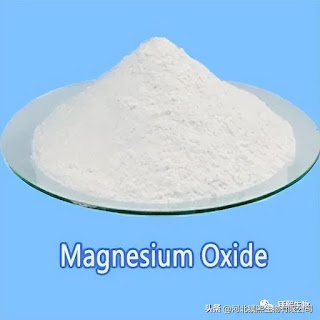Messi Biology stated that in halogen-containing rubber, due to high-temperature vulcanization, halogens will be removed from the rubber molecular chain to form HF, HCl, HBr, etc. These products will not only affect the vulcanization performance and physical properties of the rubber compound, It also has a great impact on the performance of the product. Magnesium oxide is mainly used in the production of rubber products and neoprene adhesives. In rubber manufacturing, magnesium oxide acts as an acid absorber and accelerator, and in neoprene adhesives, it acts as a vulcanization crosslinking, anti-scorch agent and resin chelate.
Adding metal oxides to the rubber can absorb these acids. Generally, zinc oxide and magnesium oxide are commonly used, but adding more zinc oxide will easily cause scorching of the rubber compound. Therefore, using magnesium oxide is a better choice. In addition, magnesium oxide also plays a role in vulcanization and crosslinking, anti-scorch, and improvement of thermal stability in rubber. The particle size distribution and morphology of magnesium oxide refer to its ability to promote chemical reactions or physical adsorption.
Messi Biology said that the general use of magnesium oxide and zinc oxide at the same time can solve the problem of easy scorching of vulcanized rubber, high degree of vulcanization and fast vulcanization speed, and the degree of crosslinking is much higher than that of single use.
Adding magnesium oxide during mixing can play a stabilizing role, prevent scorching during processing, improve the scorching of rubber during storage, and also have the effect of plasticizing rubber during mastication. Adding magnesia to rubber at the beginning of mixing can prevent early cross-linking and cyclization of neoprene, and can increase the safety of operation. When vulcanized, it becomes a vulcanizing agent, which acts as a hydrogen chloride acceptor, improves the strength of the rubber compound, and prevents the corrosion of the fibrous tissue by hydrogen chloride.
Magnesium oxide can increase the set stress of the rubber compound, improve heat and aging resistance but lead to a decrease in elongation. The quality of magnesium oxide has a great influence on the processing and vulcanization of neoprene. When the amount of magnesium oxide is increased to 10 parts, it can make the vulcanized rubber have higher plasticity and better storage stability, but it can reduce the vulcanization speed.






0 Comments